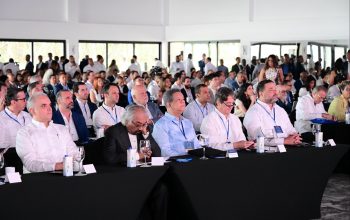news
“The Addis Ababa Action Agenda Set Up a More Robust Mechanism than its Predecessors” Comments Ambassador Talbot, co-facilitator of the Financing for Development Conference during GFDD Event
February 4, 2016
GFDD hosted a panel discussion at the UN today to celebrate the 54th Session of the Commission on Social Development (CSocD54). The event, entitled Financing Tools for Reducing Social Inequalities, aimed to contribute to the
priority theme of CSocD54: Rethinking and strengthening social development in the contemporary world. Reflecting on the financing achievements of UN development policy making in 2015, the panelists looked back at the Third International Conference on Financing for Development and the recent Paris Climate Meeting and attempted to address one central question: how can the Addis Ababa Action Agenda (AAAA) serve as an instrument to reduce inequalities and encourage a people-centered approach to strengthening social development and care for the future of our planet?
The panelists included H.E. Ambassador George Talbot, Permanent Mission of Guyana to the United Nations, Narayan Subramanian, Climate Policy Officer and Independent
Diplomat, Shari Spiegel, Chief of Branch, Financing for Development Office (DESA), Barry Herman, Visiting Senior Fellow, Graduate Program in International Affairs, The New School in New York.
The moderators for the session were Marc Jourdan, GFDD UN Program Manager and Executive Committee Member of the NGO Committee for Financing for Development, and Michele Morek, UNANIMA International and Executive Committee Member of the NGO Committee for Social Development. Jourdan welcomed the attendees and introduced the speakers stressing the diversity of the panel and the opportunity for a
meaningful discussion on the impact of financing solutions for social development.
Ambassador Talbot highlighted the 3 important characteristics of the AAAA, namely that it was holistic for the purposes of financing for sustainable development, comprehensive in its scope, and organically linked to the Sustainable Development Goals (SDGs) and to the 2030
Agenda for Sustainable Development. He concluded by stressing that "the Addis Ababa Action Agenda set up a more robust mechanism than its predecessors." He added that the AAAA "is a strong political commitment to addressing the challenge of financing for development and a sustainable environment" before concluding that "it speaks specifically to the question of the social dimension."
Subramanian spoke in his capacity as a Climate Policy Officer at Independent Diplomat, a diplomatic advisory group, which has advised the Republic of the Marshall Islands in UN climate negotiations since 2009. He stressed that his role was to "assist marginalized countries" in the UN climate negotiations. He provided brief highlights of the Paris Climate Agreement adopted in December of last year stressing the global nature of the agreement as it invokes the responsibility of both developed and developing countries. He noted that the long term temperature goal to "pursue efforts to limit the temperature increase to 1.5 Celsius above pre industrial levels" sent "clear signals to investors as to where we are
headed."
Spiegel took the floor, concurring with the comments of the two previous speakers and noted that the achievements of the UN throughout 2015 were complementary as the AAAA, the SDGs and the Paris Climate Agreement seemed to "build on each other." She noted that the AAAA represented the first time there had been an agreement "on specific issues and goals for the financial sector but with big implications for climate issues and
social issues." Further information regarding the work of UN DESA in relation to the implementation of the AAAA is available here.
Finally, Herman noted the minimal amount of provisions within the AAAA dealing with social financing and human rights. He stressed "the need to finance social protection floors" and promote potential
solutions proposed by civil society at large. To underscore the importance of this issue he stated that "66% of the world population endures in some kind of inadequate social protection floor." He referred the guests to a recent report he published on social protection floors available in the newsletter of the International Council on Social Welfare available here.
Jourdan and Morek then opened up the discussion for an engaged question and answer session with the audience who challenged the speakers on a variety of topics including social justice, the role of the private sector in investing in social development and the role of micro financing.
About CSocD54
The fifty fourth session of the UN Commission for Social Development will take place at the
United Nations Headquarters in New York from 3 to 12 February 2016. The priority theme of the conference will be “Rethinking and strengthening social development in the contemporary world”, and it will take into account a note from the UN Secretariat on ‘Emerging Issues: Implementing the 2030 Agenda for Sustainable Development: moving from commitments to results for achieving social development’.
Presentations
Narayan Subramanian, Climate Policy Officer and Independent Diplomat,
Shari Spiegel, Chief of Branch, Financing for Development Office (DESA),
Report
Barry Herman, Visiting Senior Fellow, Graduate Program in International Affairs, The New School in New York.
Related Links
http://www.un.org/sustainabledevelopment/blog/2015/07/countries-adopt-addis-ababa-action-agenda/
https://www.un.org/development/desa/dspd/united-nations-commission-for-social-development-csocd-social-policy-and-development-division/54th-session-of-the-commission-for-social-development-csocd54.html
http://www.un.org/esa/ffd/ffd-follow-up/ecosoc-ffd-forum.html
http://icsw.org/
http://newsroom.unfccc.int/unfccc-newsroom/finale-cop21/
https://sustainabledevelopment.un.org/topics/sustainabledevelopmentgoals







